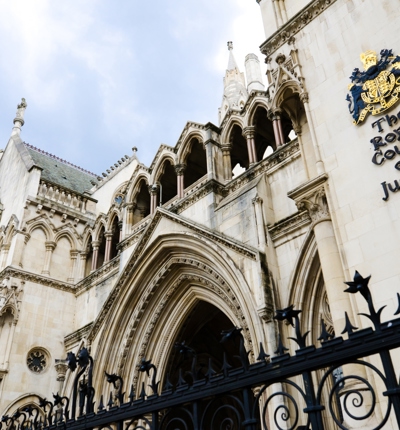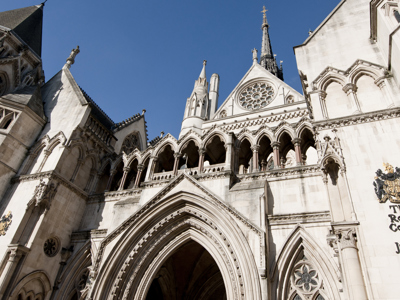
Friends of the Earth court hearing to challenge UK Government investment in Mozambique gas project
Friends of the Earth (FoE) has a High Court hearing on Tuesday 7 December challenging the UK Government’s decision to invest $1.15bn in a gas project in Northern Mozambique.
Posted on 01 December 2021
The campaign group says the decision to provide the finance package – one of the biggest ever offered to a foreign fossil fuel project by the Department of Trade and Foreign Affairs – is unlawful.
The US$20bn development by Total E&P will extract 43 million tonnes of liquid natural gas (LNG) per annum for 32 years from offshore gas fields in Cabo Delgado, and (based on recent analysis by the New Economics Foundation) will create 4.3 billion tonnes of combusted emissions.
The construction phase of the project will increase the greenhouse gas (GHG) emissions of Mozambique by up to 10 per cent by 2022, say Friends of the Earth (FoE), who estimate that the emissions from the end-use of the gas produced over the project’s lifetime could be equivalent to the combined annual emissions of all 27 EU member countries.
In their judicial review hearing, FoE who are represented by law firm Leigh Day, as well as barristers Jessica Simor QC, Kate Cook and Anita Davies from Matrix Chambers, will argue primarily that the failure of UK Export Finance (UKEF) to quantify the emissions that will be produced from the use of the LNG meant the conclusion that financing the project was compatible with the Paris Agreement, was unlawful. It will be argued that the UK’s obligations both globally, in terms of making all finance flows consistent with the low emissions pathway required in Article 2(1)(c) of the Paris Agreement, and at a country level, in terms of assisting Mozambique to meet its Nationally Determined Contribution (NDC), will not be adhered to as a result of the financing.
The day after the decision to invest, the CDC (UK development bank) adopted a climate change strategy which excluded new investment in the vast majority of fossil fuel subsectors. Six months later, 12 December 2020, the Prime Minister announced the UK would no longer provide any new direct finance or promotional support for the fossil fuel energy sector overseas. That policy was adopted on 31 March 2021, and provided for alignment with the Paris Agreement. In September 21, the International Trade Secretary committed to make her department’s portfolio net zero by 2050.
FoE’s grounds for challenge are that:
- The decision was an error of law: the Paris Agreement requires the UK to make finance flows consistent with a low emissions pathway and to support developing countries to meet successive NDCs. FoE argues that the project undermines Mozambique’s ability to meet its climate commitments under the Paris Agreement. The decision to invest is contrary to UK obligations in relation to finance under the Paris Agreement, as well as its obligation to assist Mozambique as a vulnerable developing country.
- There was a failure to take account of essential relevant considerations, for example analysis of the quantity of GHG emissions that would be generated by liquid natural gas from the project over its lifetime, and an analysis against either a 1.5C low emissions pathway or climate impacts by reference to carbon budgets and pathways aligned with the Paris Agreement.
FoE is seeking both a declaration that the decision to invest in the project was reached on the basis of an erroneous understanding that the project and its financing were compatible with the UK’s obligation under the Paris Agreement and an order quashing the decision.
Friends of the Earth climate campaigner, Tony Bosworth, said:
“A few short weeks ago Boris Johnson was warning the world to do more to confront the climate emergency, now his government is heading to court to defend its decision to provide hundreds of millions of pounds of UK taxpayers money to support a huge gas project in Mozambique.
“If it goes ahead this development could produce more climate wrecking pollution over its lifetime than the combined annual greenhouse gas emissions of all 27 EU countries.
“We believe the government acted unlawfully by failing to comply with its climate obligations, which is why we are taking legal action.
“Confronting the climate crisis means leaving fossil fuels in the ground both at home and abroad and investing in the clean energy systems we so urgently need.”
Leigh Day solicitor Rowan Smith, who represents Friends of the Earth, said:
“Policy makers are now clear: any new investment in fossil fuel extraction is inconsistent with the low emissions pathway under the Paris Agreement. This project was never compatible with the Paris Agreement on the basis of the evidence taken into account, and the UK was not – our clients will argue – legally permitted to conclude otherwise. It is impossible to imagine in political terms how the UK could, if it attempted to do so today, approve this project in light of the Glasgow Declaration.”



